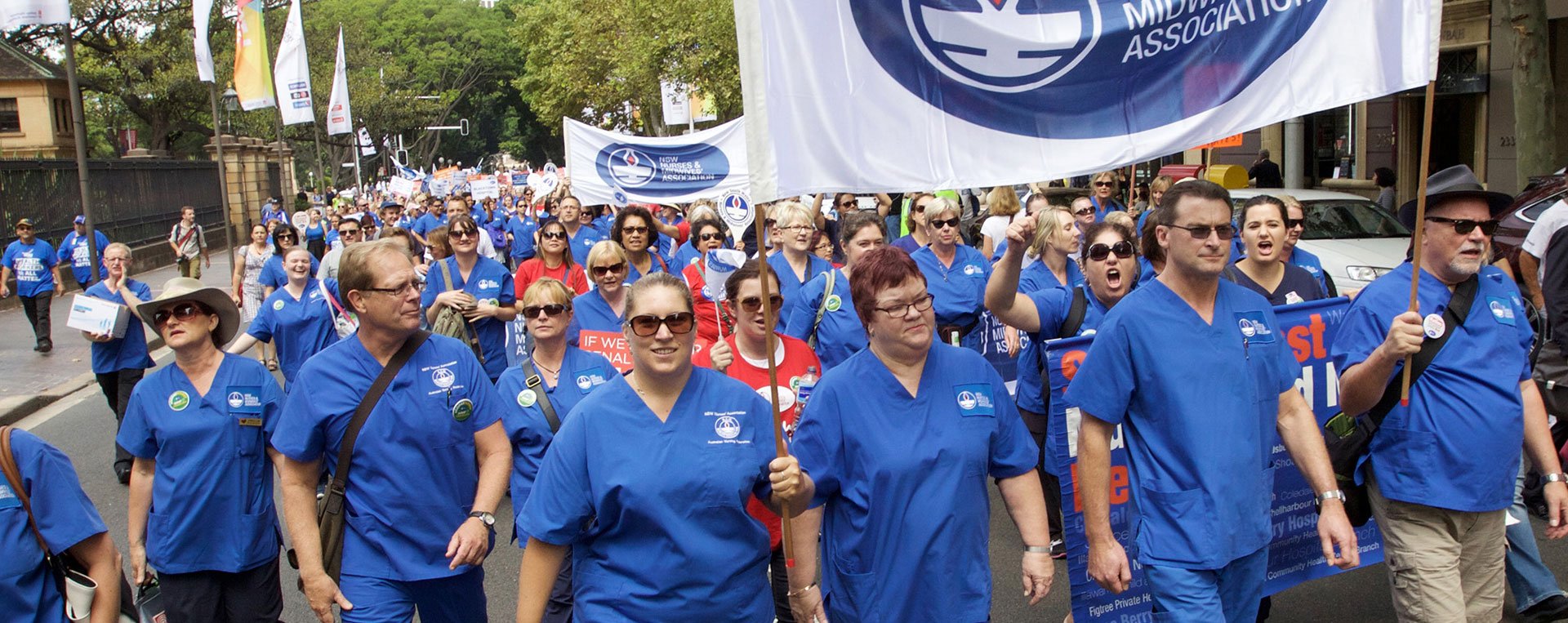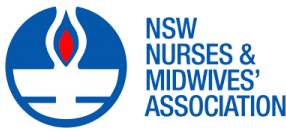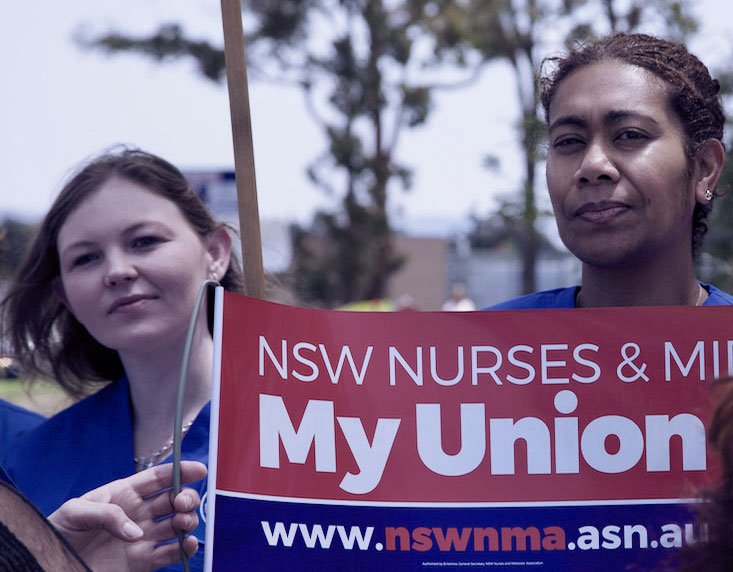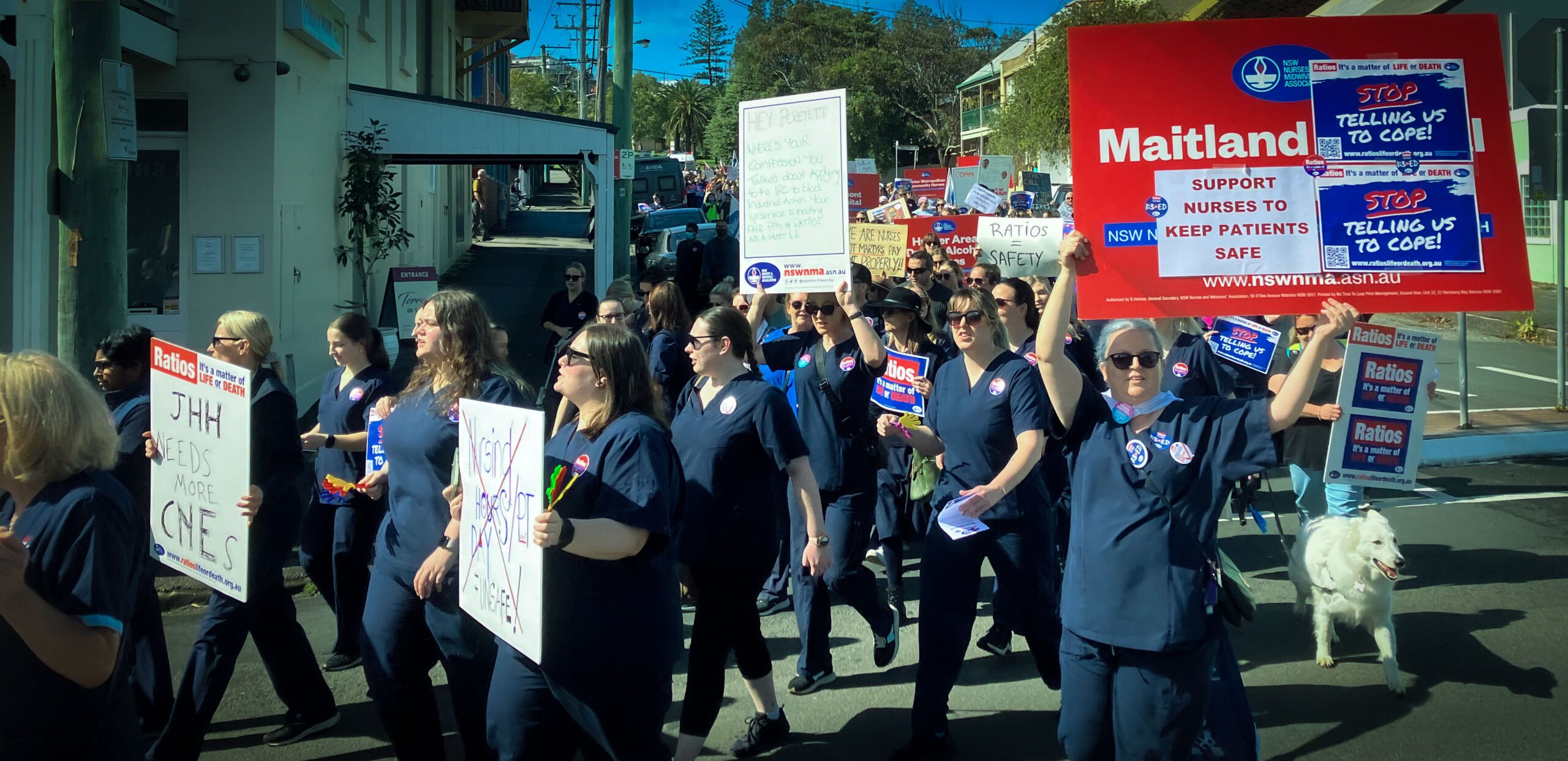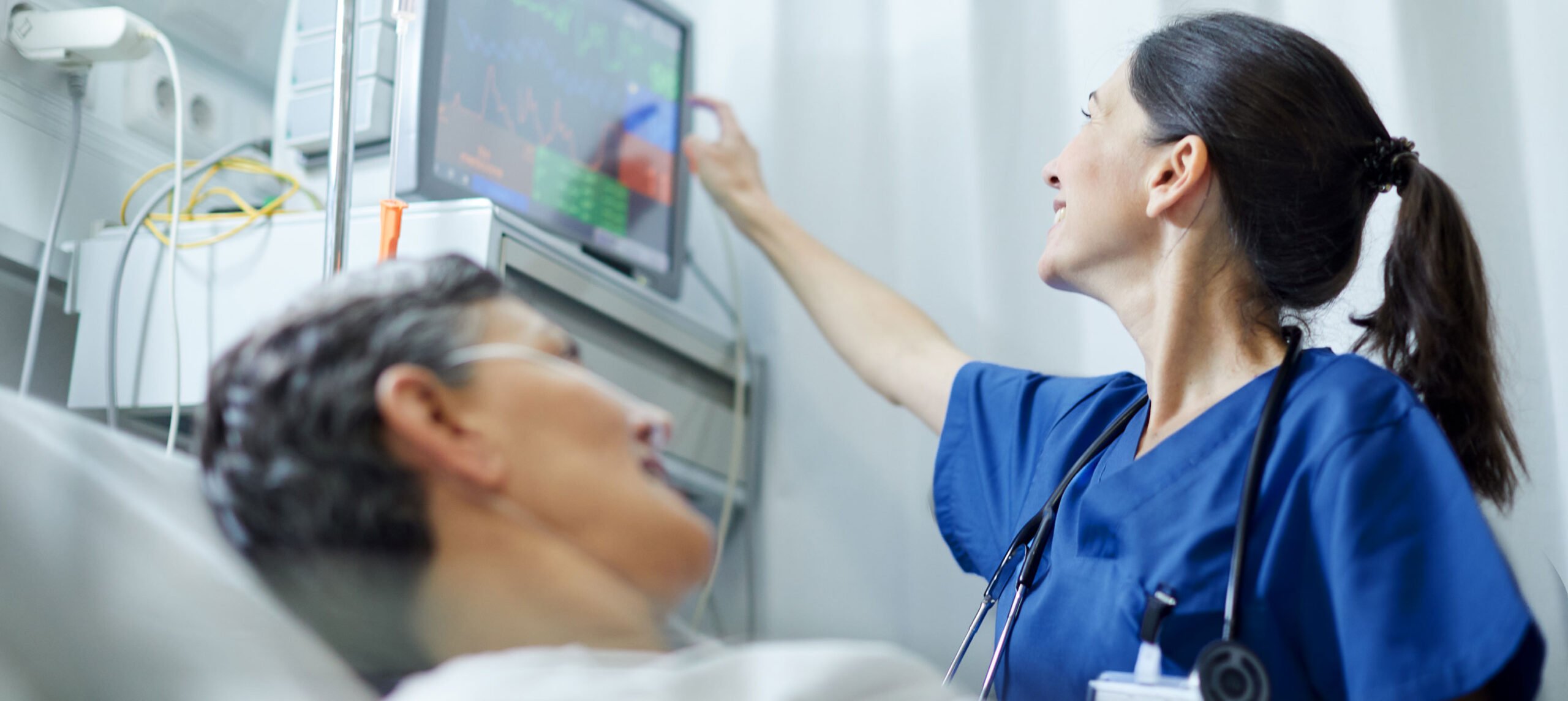Australian and international nurses, midwives and union officials today joined Ebola health workers on the frontline in Liberia.
The Queensland Nurses’ Union (QNU) this morning hosted an International G20 Nursing Conference at their Brisbane headquarters and crossed live to health workers fighting Ebola in the Liberian capital of Monrovia. The event was one of many being held around the world this week to highlight the need for Ebola preparedness and the plight of health workers fighting the virus in West-Africa, the United States, Spain and elsewhere.
Liberian nurse Laurene Wisseh and ambulance officer Gorden Kamara, who operate one of around 15 ambulances currently servicing the country’s 1.5 million residents, spoke live with Australian and international nurses and union officials to call on world leaders at the G20 to provide increased protections for health workers now.
QNU Secretary Beth Mohle said those fighting Ebola in the severely under resourced region had woefully inadequate personal protective equipment and support – and voluntarily isolated themselves from loved ones to reduce the risk of infection. Ms Mohle said Ebola health workers needed improved Personal Protective Equipment (PPE) and logistical support to transport equipment immediately. Ms Wisseh and Mr Kamara said Liberia also needed more doctors and training.
“Every day thousands of health workers like Laurene and Gorden risk their lives to help stop the spread of Ebola,” Ms Mohle said.
“According to global trade union federation, Public Service International (PSI), 416 health workers have been infected with Ebola and 233 have died as a result.
“One in 10 of all deaths confirmed due to Ebola are healthcare workers and yet these frontline carers continue to risk their lives to help their patients and stop the contagion.
“We applaud recent efforts to establish additional facilities in West Africa but must stress local health workers continue to die at a rapid rate because they don’t have protective equipment or logistical support to transport these supplies.
“Laurene, Gorden and the international nursing and midwifery community today call for immediate, increased protections for Ebola heath workers.”
Ms Wisseh has spent the last several months treating Ebola. This morning the nurse called on Australian Prime Minister Tony Abbott, President Barack Obama and other world leaders in Brisbane for the G20 to send additional help immediately.
“We need the world’s help now to stop the spread of Ebola,” Ms Wisseh said.
“At the moment we are sharing equipment, sometimes reusing disposable gloves and in the worst case scenario using plastic bags to protect against Ebola.
“In the last 24 hours, we have responded to seven cases and saw a mother and her six children aged between one and 13 years infected with Ebola.”
Monrovian ambulance officer Gordon Kamara said Liberia had one doctor per 14,000 patients.
“To fight Ebola Virus Disease effectively in Liberia, we need more trained doctors, nurses, hygienists, ambulances, drivers, assorted antibiotics, oral rehydration salts, vitamins and anti-malarial drugs,” Mr Kamara said.
“We need a well organised and trained anti-Ebola response hub in each of the 15 political subdivision of Liberia equipped with Ebola Treatment Unit, warehouses stocked with Personal Protection Equipment and supplies for rapid respond to an Ebola outbreak in any part of Liberia.
“I am appealing to the President Obama and Prime Minister Abbott and other world leaders to not relent in providing Liberia all the help we need to combat this virus.
“I have not lived with my nine children for six months because the risk of infection is great while transporting Ebola patients. The risks are very high yet the fight must continue.
“We will go anywhere at any time to win the war on Ebola but we need Australia and the world’s help now.”
To donate to provide protective equipment for health workers please visit http://anmf.org.au/campaign/entry/ebola-appeal
Health care workers and nursing and midwifery unions from Australia, America, Nigeria and around the globe attended the QNU’s G20 conference to discuss the Ebola epidemic. Additional themes included the importance of universal health care worldwide and the protection of essential Australian public health services, such as Medicare.
National Association of Nigerian Nurses and Midwives (NANNM) President Abdrafiu Alani Adeniji, Australian Nursing and Midwives Federation (ANMF) Federal Secretary Lee Thomas, NSW Nurses and Midwives’ Association (NSWNMA) General Secretary Brett Holmes, American-based National Nurses’ United (NNU) Co-President Deborah Burger, Canadian Federation of Nurses’ Unions (CFNU) President Linda Silas, France-based Public Sector International (PSI) spokesman Daniel Bertossa and Oxfam G20 Coordinator Claire Spoors were among the QNU’s G20 conference speakers and attendees. Australian nurses recently returned from Sierra Leone or who have applied to volunteer overseas also attended.
PSI spokesman Daniel Bertossa said a recent global survey of health workers fighting Ebola found a common response was that they had no access to basic protective equipment. Mr Bertossa said the Ebola outbreak was directly linked to poor investment in public sector health systems in West Africa, and the axing of international aid to developing nations.
“There is a clear link between the outbreak of Ebola Virus Disease, poor investment in public sector health systems in West Africa and austerity measures imposed in Europe,” Mr Bertossa said.
“The grievously high loss of health care workers and the tragic scale of the outbreak in West Africa are similarly due to the senseless imposition of austerity policies and the entirely short-sighted failure to repair and invest in the growth of public sector health infrastructure and health systems in the three most affected countries – Guinea, Liberia and Sierra Leone.
“This situation is deplorable and brings to light gross deficiencies, the short-sightedness of underinvestment in health services and the deeply misguided under resourcing and staffing of health care workers.
“The widespread failure to equip healthcare workers and to give them the means to protect themselves and save their lives is appalling and intolerable. The Ebola outbreak clearly highlights the threat posed to societies when quality public health systems are absent.”
NNU Co-President Deborah Burger said November 12 marked a national day of action for American nurses with tens of thousands of Registered Nurses (RNs) expected to protest lack of Ebola preparedness in US hospitals, including strikes at many facilities.
“We are demanding that optimal, protective equipment and training be available to all nurses and other frontline caregivers in US hospitals,” said Ms Burger.
“The infection of two registered nurses in Dallas shows that US hospitals are not prepared and American nurses are determined to make our voices heard.”
Ms Burger added that the concerns are shared by nurses around the world.
“Actions are taking place around the world, organized by Global Nurses United, to support nurses in West Africa who are at the epicenter of the crisis and to demand that hospitals in our respective countries are fully prepared with the optimal equipment and training to treat Ebola patients,” she said.
Global Nurses United (GNU) is an alliance of nursing and midwifery unions in 14 countries including Australia, America and Canada.
CFNU President Ms Linda Silas said a united approach to global healthcare was paramount.
“With Ebola in front of us, health care world-wide is facing an Occupational Health and Safety crisis,” Ms Silas said.
“It is time we work together at all levels to protect HWC that will be there to care for the sick.”
NSWNMA General Secretary Brett Holmes said the Ebola outbreak highlighted the need for world-wide universal health care. Mr Holmes said global investment in public health services and hospitals would protect against outbreaks like Ebola.
He said the Ebola crisis also highlighted the need to protect tax payer funded public health and hospital services at home, such as those provided under Medicare.
“Ebola has killed thousands in a country where residents do not have access to adequate public health services or hospitals,” Mr Holmes said.
“This crisis highlights the importance of public health services around the world and the very real need to protect those provided under Medicare from threats such as the Abbott government’s proposed $7 GP co-payment.”
On November 5, Mr Abbott announced the introduction of “price signals in the health system” would form an integral part of his G20 pledge this week. The Abbott government’s proposed co-payment for access to a General Practioner (GP) and basic medical attention could end Medicare and universal health care in Australia.
Mr Holmes said the NSWNMA was advocating for the implementation of a Robin Hood tax or levy of between 0.005 and 0.05 per cent on the trading of financial instruments such as stocks, bonds, derivatives, futures, options and credit default swaps.
He said the Financial Transactions Tax would not significantly impact the savings of ordinary Australians or everyday consumer activity such as paying bills online or using ATMs. Instead, the levy would target finance companies engaging in financial transactions at high speed and frequency. For more information visit www.nswnma.asn.au/get-involved/tax-justice
